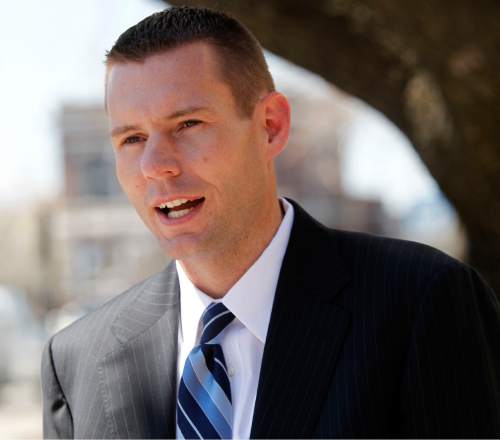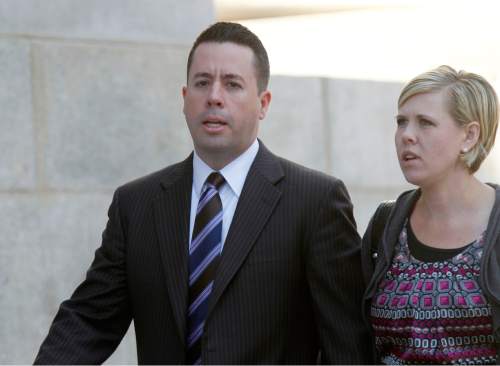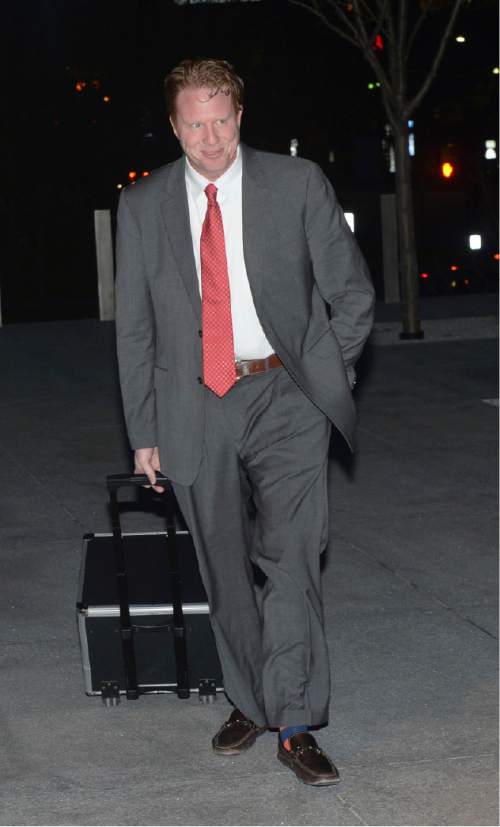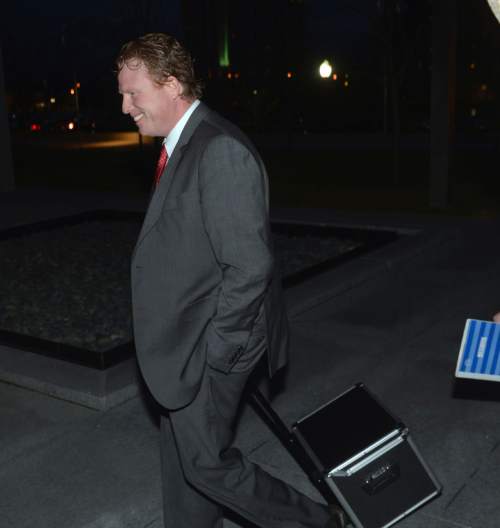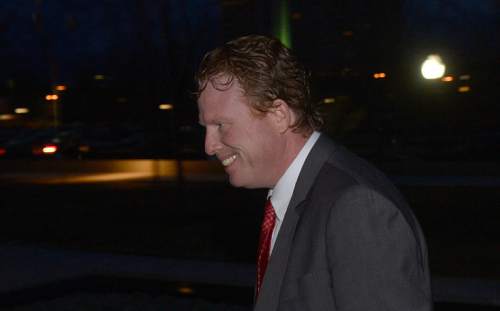This is an archived article that was published on sltrib.com in 2016, and information in the article may be outdated. It is provided only for personal research purposes and may not be reprinted.
The jury in the federal trial of St. George businessman Jeremy Johnson on Wednesday ended another day of deliberations without a verdict on the 86 charges clustered around allegations of bank fraud.
The nine men and three women on the jury received the case Friday morning, took the weekend off and since have held three days of deliberations in the federal court building in Salt Lake City.
With the jury set to return Thursday, U.S. District Judge David Nuffer proposed a number of restrictions on how jurors can be contacted and what they can say in any interviews after a verdict has been rendered. One of the proposed restrictions would prohibit them from disclosing "evidence of alleged improprieties in the jury's deliberations."
Nuffer's proposed order also says anyone wishing to contact a juror must send the court a statement about why the person wants to contact a juror, and the court would then decide whether to pass along the request.
It prohibits a juror from disclosing any information about the votes of another juror and the deliberations of the jury, while permitting disclosure of whether information or outside influence was improperly brought to the jurors outside the courtroom and whether a mistake was made on the verdict form.
Among the reasons for the proposed order, Nuffer said he wanted to shield jurors from prying questions, increase "the certainty and finality of the jury's verdict" and reduce the number of "merit-less post-trial motions."
Brett Tolman, the former U.S. attorney for Utah who's now in private practice, said the proposed order appeared unusual and bumps up against free-speech rights.
"We need to remember that a trial is a public exercise of government power," Tolman said. "It is very rare and unique to limit the public's ability to understand what's gone on in a case."
Once a jury is released, he said, "they're a member of the public and should be entitled to discuss the case."
Nuffer invited comment on the proposed order until noon Thursday, when he could make the order final.
On Tuesday, Nuffer issued an order on the court docket, sealing from public view the notes that the jury uses to communicate with the judge. He gave no reasons for the order.
Participants in the case also have been under a general gag order since May 2013.
Also on Wednesday, federal prosecutors defended the veracity of statements they made to the jury in their closing arguments.
Johnson on Monday filed a motion asking for the case to be dismissed or a mistrial declared. He argued that prosecutors had previously expressed doubts about the truthfulness of several witnesses from a California company called CardFlex that had created bank accounts for his online marketing company I Works. Johnson produced two tape recordings to bolster his argument.
But Assistant U.S. Attorney Michael Kennedy argued in a court filing that the witnesses testified "exactly consistent" with all previous statements and the evidence.
One of the recordings, Kennedy wrote, came from a meeting in which Johnson's attorney at the time agreed that any statements could not be used against the government.
"The court should ignore these clips because they are irrelevant and do not establish that the United States knowingly used perjured testimony," Kennedy wrote.


